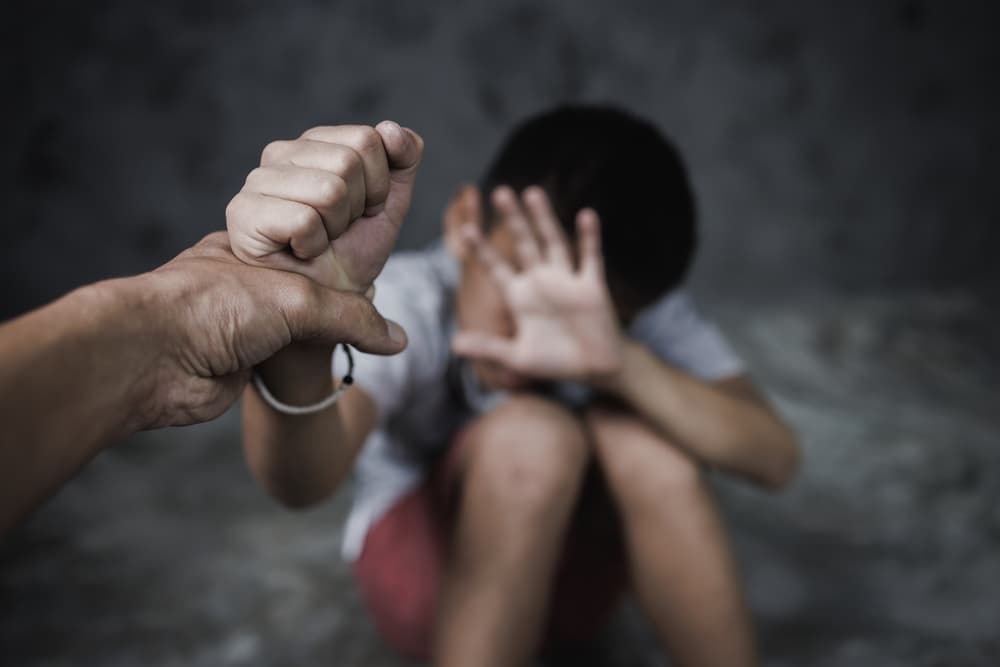House advances bill, Senate approval sets stage for potential law
BOSTON—A bill that could transform how child sexual abuse survivors seek justice has taken a major step forward in Massachusetts. Legislation (S. 2932) to abolish the civil statute of limitations for child sexual abuse cases has moved through the Senate and recently received initial approval in the House during an informal session. The proposed measure, if enacted, would align Massachusetts with a growing list of states eliminating such time restrictions, empowering survivors regardless of when they are ready to come forward.
Sen. Joan Lovely, a survivor of child sexual abuse and the bill’s lead sponsor, delivered an emotional Senate floor address prior to its approval. “Back in 2014, we passed a statute of limitations for civil claims of child sexual abuse that would allow claims up to 35 years after the victim turned 18, or until 53 years old,” she said. “I questioned then, and over the last decade, what was the magic number of 53, and I couldn’t find one — I couldn’t find that answer.”
Lovely’s advocacy builds on her pivotal role in the 2014 reform while reflecting a broader understanding rooted in survivor and expert testimony. The legislation proposes sweeping changes that would lift civil limitations entirely for survivors, whether they seek to file claims against abusers or the institutions that failed to shield them.
If you or someone you love is a survivor of child sexual abuse, you should contact a skilled and compassionate attorney right away. A child sexual abuse attorney can evaluate your claim, go over your legal options with you, and fight for the compensation you need.
Massachusetts Joins a National Shift
Massachusetts’ effort comes amid a nationwide push to eliminate legal hurdles for survivors of child sexual abuse. Thus far, 19 states, including Vermont and Maine, have abolished their civil statutes of limitations completely. Advocates argue such changes are critical in addressing trauma and ensuring survivors have viable legal routes no matter how long they take to disclose abuse.
“Trauma is not a timeline and can’t be governed by a timeline,” said Lovely, echoing testimony from mental health professionals and survivors. Nearly 4 million children experience sexual abuse annually in the United States, according to data cited by Lovely on the Senate floor. Survivors often face devastating long-term consequences, including heightened suicide risks.
Lovely underscored that removing legal deadlines sends a powerful message to survivors and society. “This is a great thing,” said Sandi Johnson, senior legislative policy counsel at the Rape, Abuse & Incest National Network (RAINN). Johnson emphasized that creating an open-ended framework shifts the focus back to evidence rather than rigid timelines. “We believe that survivors should have access to justice, regardless of when they’re able to access that justice.”
The Legal Landscape
The movement to eliminate or extend statutes of limitations for child sexual abuse cases has gained momentum in recent years, driven by increased public awareness and high-profile cases involving institutions such as the Catholic Church, Boy Scouts of America, and various educational and sports organizations.
Here's a brief overview of the current situation:
- States Leading the Way: Vermont, Maine, and several others have completely eliminated the statute of limitations for civil cases related to child sexual abuse.
- Window Legislation: Some states have implemented "look-back windows," allowing survivors to file lawsuits for a specified period, regardless of when the abuse occurred.
- Extended Time Limits: Many states have significantly extended the time limits for filing civil suits, often allowing survivors to bring cases well into adulthood.
The proposed Massachusetts bill represents a significant step forward, potentially influencing other states to reconsider their own statutes of limitations.
Civil Cases vs. Criminal Laws

It’s important to point out that this legislation focuses on civil cases rather than criminal prosecution. Under current Massachusetts law, the criminal statute of limitations is more nuanced and depends on various factors, including corroborating evidence that may enable charges to be filed indefinitely.
Civil cases, meanwhile, require a lower burden of proof and enable survivors to seek compensation or accountability outside the criminal justice system.
Some survivors choose civil lawsuits to reclaim their voices, hold abusers and negligent institutions accountable, or pursue monetary support to cover therapy and other recovery costs. Advocates believe this dual pathway—civil alongside criminal—is crucial in addressing the complex needs of survivors.
More Avenues for Survivors to Seek Justice
In Massachusetts, the statute of limitations for criminal sexual abuse cases is complex. Generally, it extends to 27 years from reporting the crime to law enforcement or from when the victim turns 16, whichever occurs earlier. Importantly, if evidence corroborates the victim's allegations, the statute of limitations can be extended indefinitely. This means that in cases with strong corroborating evidence, criminal charges could potentially be brought at any time.
Eliminating the civil statute of limitations provides an additional avenue for survivors to seek justice, especially in cases where criminal prosecution is no longer possible due to time limits or lack of evidence meeting the higher criminal standard of proof. However, the provision for an indefinite extension of the criminal statute of limitations in cases with corroborating evidence underscores the state's commitment to pursuing justice for survivors, even in older cases.
While the criminal justice system plays a crucial role in holding abusers accountable, civil lawsuits offer survivors a different form of recourse. Civil cases can provide financial compensation to help with recovery expenses, hold institutions accountable for negligence, and offer a sense of justice and closure that might not be achievable through the criminal system alone.
Why This Legislation Matters
Legal deadlines have historically discouraged survivors from pursuing justice. Research shows that survivors often wait decades—an average of more than 20 years—to disclose abuse. Many never share their experiences because of fear, shame, or emotional barriers. Eliminating statutes of limitations recognizes these complexities, ensuring legal recourse exists when survivors are ready.
Should the legislation ultimately reach the governor’s desk, it would extend opportunities to survivors who were previously blocked from filing claims. This includes individuals unable to meet the existing age cutoff of 53. “A lot of survivors, this won’t change anything for them, they're not going to come forward,” Lovely acknowledged. “They will keep that tucked away and live with the pain, but some may come forward, and they should be allowed to.”
Evidence from other states suggests a permanent abolition, such as the one Massachusetts proposes, could offer enduring recourse without placing arbitrary deadlines on healing and justice.
A Legal and Cultural Impact
The measure brings implications that extend beyond individual claims. Institutions such as religious organizations, educational systems, and youth programs have come under scrutiny for failing to prevent or even covering up sexual abuse scandals. Removing statutes of limitations for civil cases improves transparency and accountability, prompting organizations to enforce stronger safeguards. Survivors see these reforms as essential to both acknowledging past harm and preventing future abuse.
Lovely noted how dialogue with survivors in her district and beyond reaffirmed the lifelong suffering child sexual abuse causes. “I want to thank all of the survivors in and out of my district who have come to me, including colleagues, who disclosed to me that at some point in their life they were sexually abused, but they choose not to come forward and disclose because of how painful it is,” she said. “It really is lifelong pain and trauma.”
The Impact on Institutions
Eliminating the statute of limitations doesn't just affect individual abusers; it also has implications for institutions that may have enabled or covered up abuse. This includes:

- Religious organizations
- Educational institutions
- Youth sports programs
- Foster care systems
- Healthcare facilities
By allowing survivors to bring cases forward regardless of when the abuse occurred, these reforms create a powerful incentive for institutions to implement robust safeguards and respond appropriately to allegations of abuse.
What’s Next
Massachusetts has taken significant strides, but the bill must still clear further action in the House before it can reach Gov. Maura Healey’s desk. Advocates remain cautiously optimistic that lawmakers can finalize the legislation, setting a new standard for survivor-led justice.
“No one can make that pain disappear, but survivors deserve the choice to confront it whenever they feel ready,” Lovely said. “We should be there for them when that happens.”
Seeking Justice for Survivors of Sexual Abuse
If you’re a survivor of sexual abuse, you have the right to explore your legal options. At File Abuse Lawsuit, we’re committed to standing by your side every step of the way, offering compassionate guidance and powerful legal advocacy.
Contact us today for a free, confidential consultation and take the first step toward justice on your terms.